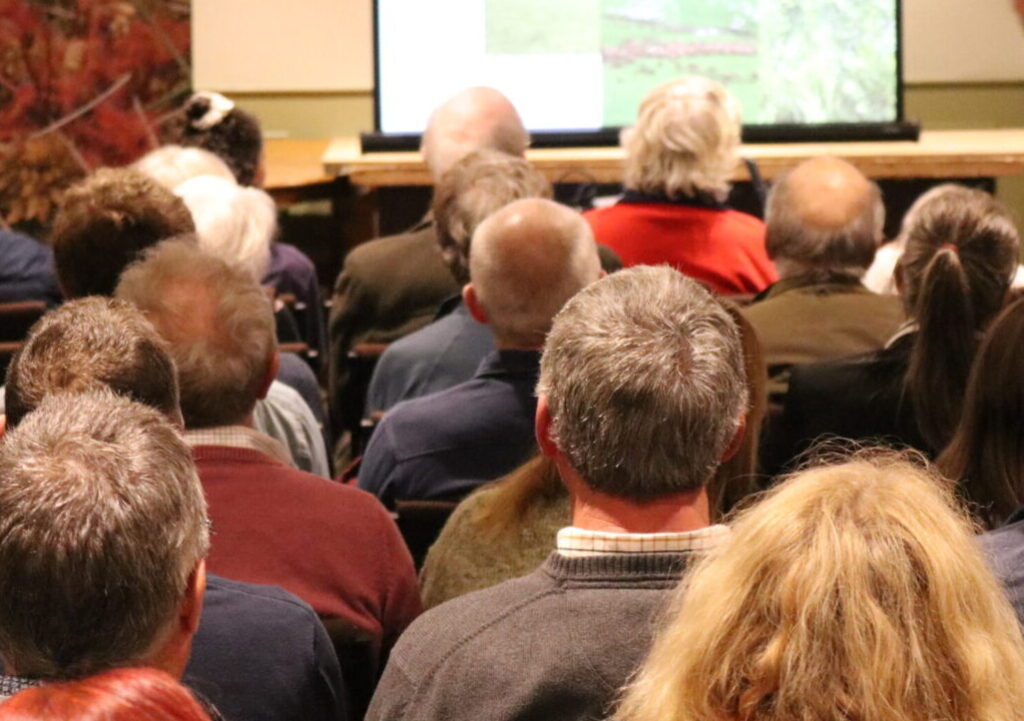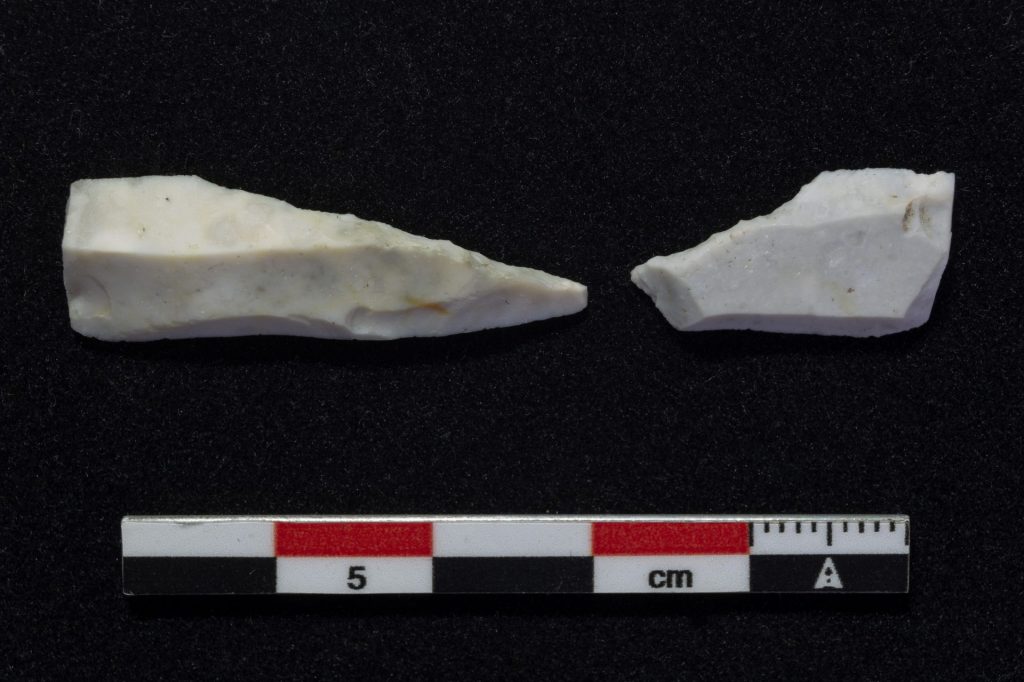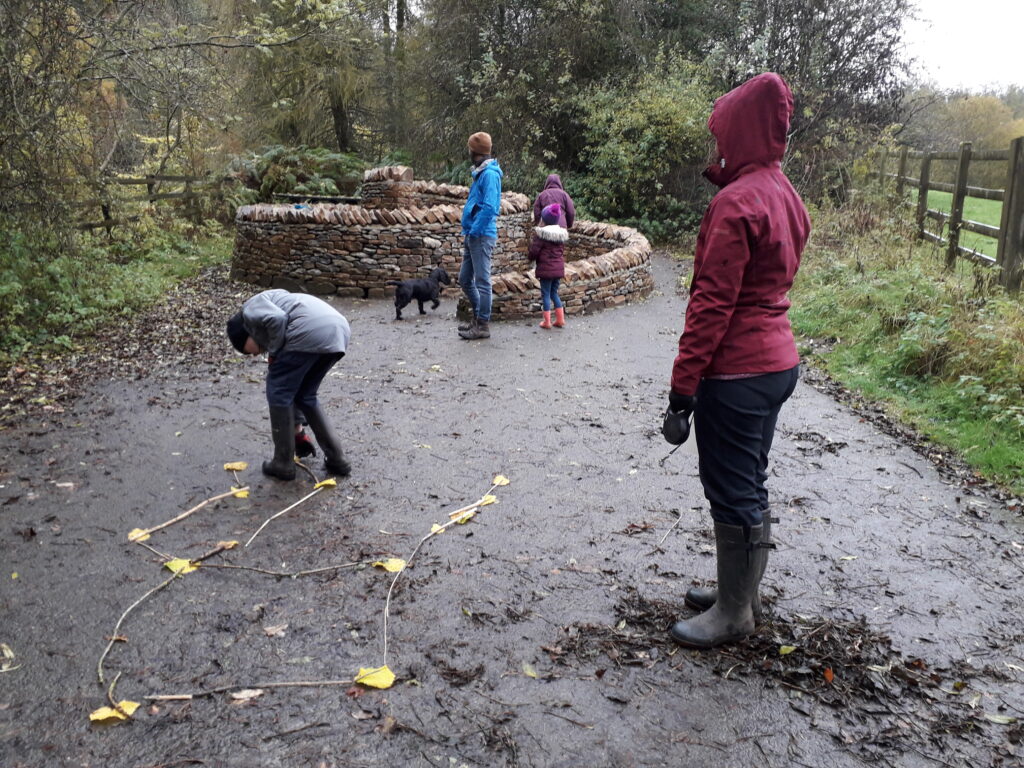Fellfoot Forward Landscape Partnership Scheme
Future Fair case study – the Festival of Nature
Future Fair project manager, Roe Baker, talked with a few of the partners and participants at the Festival of Nature at Talkin Tarn on a fabulous sunny Saturday in June to ask how we did in implementing a Future Fair approach to the Festival of Nature delivery.
Transport
In 2020, Small World Consulting calculated the Carbon Baseline Report for Cumbria. The report looked at extraction, production and consumption-based emissions. In Cumbria, driving emissions attributable to driving, that is direct and supply chain emissions from vehicle fuel combustion and emissions from vehicle manufacture and maintenance, represent 32% of the total footprint of residents and visitors combined. Two thirds of this is attributable to fuel consumption, accounting for 22% of the total footprint. Resident driving within and outside Cumbria accounts for 8% of the total footprint. The available data suggests that Cumbria residents drive around 20% more than the UK average, which is unsurprising given the geography of the county. Visitor driving accounts for 17% of the total footprint. Of this, 72% comes from journeys to and from Cumbria, and 27% within Cumbria.

Dependence on independent car travel across rural areas with very limited public transport options, especially to more remote locations and at evenings/weekends is inevitably going to be challenging within the Fellfoot Forward scheme area.
Talkin Tarn can be reached by road and rail. There is a bus route that can drop visitors off close to the park entrance. After a short walk, Talkin Tarn is also easily accessible from Brampton Junction railway station.
The Fellfoot Forward Team:
- Promoted the use of the local shuttle bus to and from the event at Talkin Tarn from Brampton – Organising group transport, car share and pick up points.
- Encouraged the use of public transport and provided details of public transport (train) to participating groups.
Collectively partners deployed the following to reduce transport emissions:
- Car share.
- Hire of a community mini bus.
- Drove in a carbon conscious style to reduce emissions as much as possible and balanced emissions by cycling or walking at other times and working locally:
11 ways to reduce your driving emissions | RAC Drive - Took the train to Brampton Junction and walked.
- Used the shared work van.
Challenges:
All partners acknowledged that working in the geographical Fellfoot Forward area made it very challenging to find alternatives to car and van use, especially when transporting equipment to and from remote sites is required, and also identified transport as one of the key challenges to increased volunteering opportunities.
Potential for positive change:
Talkin Tarn has a large, surfaced car park with sufficient parking for 120 cars. There is a disabled parking area and also coach and motorcycle parking areas.
It was noticeable that there are currently no electric vehicle charge points, and no visible safe cycle storage or cycle stands at the venue. This is something that the Fellfoot Forward scheme could discuss with Carlisle City Council, who own and manage the site with local community stakeholders. It will need to be addressed as the use of electric vehicles grows and would be an ideal place, as electric vehicles and electric bikes could charge in the time it takes a visitor to walk around the tarn and enjoy a coffee. The tarn is an extremely popular place to visit, with a regular weekend park run, a boat hire facility, café, and outdoor education centre. There is potential to introduce solar PV charge points and renewable energy generation on site.
Kentdale First Aid and Training

Thanks to Barry and Les of Kentdale First Aid (image : Roe Baker)
Based outside Kendal, Kentdale First Aid ambulances and staff regularly cover outdoor events, and they provided the Emergency First Aid cover for the Festival of Nature. Their service relieves pressure on the NHS by regularly working ‘night save’ from 10pm–4am. They also provide training and are volunteers for the NHS, Red Cross, and St John Ambulance.
Challenges:
- The ambulance runs on diesel and it needs a diesel heater to maintain the temperature if a patient is being treated in the back.
- The ambulance is a heavy vehicle and has a tail lift which uses a lot of energy generation.
- The vehicle is carrying life support equipment which needs to have power in an emergency.
- They need to deploy at a moment’s notice, so vehicles need to be ‘start and go’ ready.
- They are working in a rural area with sparse infrastructure, often at isolated events. It’s regularly a 50–60 mile journey to a call out (120 mile round trip).
- Electric ambulances are being looked at but are currently cost prohibitive. There isn’t the battery technology for continuous recharge or the rapid charge infrastructure in place to make them a viable option at present.
Equipment and Marketing Suppliers
We can make an impact across the scheme by working with suppliers to ensure best environmental practice throughout the supply chain.
North Pennines AONB Partnership
The team working on the Fellfoot Forward LPS approached local suppliers wherever possible to be part of the delivery and, when setting up new suppliers or contracts, including environmental considerations in the procurement process.
The team also utilised the weblink www.slido.com to gather a quick infographic evaluation of the festival – a really useful and immediate tool which can be scanned from a QR code and accessed via a mobile phone. This kind of approach appeals to young people, cuts down on the need for printed materials and engaging in long tick box/more comments type evaluation methods. It’s not for everyone, but it does offer a different evaluative approach.
Food catering and waste management
The source, production, cooking, transport, and waste of food at catered events is an important part of the overall environmental impact. The team provided a packed lunch option for all participants from the Hallbankgate Hub, which sources locally produced and seasonal food, prioritises Fairtrade and organic goods. Lunch was delivered in recyclable paper bags with homemade cake and fruit, and vegetarian and vegan options were standard. Food waste was minimised by contacting participants in advance to take orders and check dietary requirements. Volunteers and participants were asked to bring their own reusable mug and bottle, and water refill points were provided.
Collectively partners deployed the following considerations:
- The entire lifecycle of products in the supply chain and their long-term impact. When contracting marketing materials H&H Reeds in Penrith was used for their high environmental credentials and an environmental policy.
- All employed a policy on no single use plastics.
- Utilised all natural materials and foraged materials for arts and crafts, choosing recyclable, reused and compostable materials with no long-term environmental impact.
Environmental artist Richard Shilling

Talking about his focus on creating land-based art, Richard said: “The whole ethos of my work is about showing people who don’t necessarily get out into nature how to experience and connect and how to develop a love for nature and the planet. We use all foraged natural materials and I choose seasonal plants available from March to October so there’s no environmental impact, today I’m using cherry laurel leaves and willow. These materials all decompose naturally. I want to show people that you can make stuff – really beautiful stuff – you don’t need to buy it.”
Tullie House – Once upon a Planet

Human Change not Climate Change. Once Upon a Planet: the story of our planet is at a crucial chapter is a brand new exhibition that uses Tullie House’s nationally significant Natural Science collections to explore the impact of climate change on the animals, plants and habitats around us.
Roe talked to Wednesday Batchelor, Tullie House’s Curatorial Assistant for Biodiversity Collections, in the Festival of Nature’s Rainbow Glade: “Tullie House is a Carbon Literate organisation. We use local suppliers wherever we can but we do have to source conservation grade materials and these come from specialist suppliers. In the museum shop, we support independent producers and small businesses, and there is no plastic. We’ve made a conscious decision to only stock textile toys, not plastic, and we’re very keen to promote the recyclability of our products. The exhibition, Once Upon a Planet, has been led by a 100% voluntary youth-based team of 12–25 years olds right from the initial planning through to delivery.”.
Potential for positive change:
Training in Carbon Literacy is available locally through Cumbria Action for Sustainability. It would be a great legacy if all partners involved in the Fellfoot Forward scheme received accredited Carbon Literacy Training. CAfS also have a free online carbon calculator for both individuals and businesses to utilise. Taking a baseline calculation of your emissions is the first step to identifying potentials to reduce emissions and your organisational carbon footprint.

Volunteers and Young People
Future Fair aims to:
- Ensure the project offers educational grassroots, accessible and inclusive engagement opportunities with local communities that are ‘open to all’ and will create a positive understanding of the cultural, heritage and environmental impact.
- Ensure inclusive volunteering and engagement opportunities that are clear, positive and enabling.
The Rainbow Glade at the festival was developed by young people for young people with the support of Carlisle Youth Zone (CYZ) and Cumbria Development Education Centre CDEC The Green Place Project.
Roe talked to young members of CYZ to find that:
- CYZ had hired a minibus to support volunteering at the festival. As an organisation they encourage the use of buses, trains, cycling and walking, but top of their agenda is always the safety of their members and so pick up by car from the youth zone, especially in winter, is necessary. Many of the young people live in areas outside of the city, where public transport is limited, and others feel scared to walk alone in the city centre.
- The Youth Zone building has had an energy audit and they’ve done a full carbon footprint.
- The young people were keen to talk about the CYZ café which runs on lots of donations and products sourced from Pioneer foods, a supplier of produce from the north of England and southern Scotland. There are quite a few vegetarian members so there is always a veggie option as standard. The café is getting rid of plastic cups, they have two water refill points and encourage reusable bottles, and there are a range of separated recycling facilities. The café is linked to the local food bank. There are cooking workshops and training on how to minimise food waste and economise. They also offer cooking classes for young carers.
- The CYZ stall at the festival was a 100% natural art and creative installation, and they are currently building bug houses and setting up a garden project at the Youth Zone. Members of CYZ are also participating in their John Muir Environmental Awards – read more here.
Images: Wooden cutters at the CYZ stall, Art installation – Cloud Burst by CYZ and Eden Rivers Trust
The Gayzebo in the Rainbow Glade
This space offered the chance to share and discuss ecology, take part in creative environmental crafts, and to have an inclusive presence and a voice at the festival: “Advocating for diversity in the climate and environmental movements, with projects exploring the relationships between people and the planet and breaking down harmful stereotypes, whilst creating safe spaces for LGBTQIA+ people to be heard, seen and accepted”.

The Climate ZONE
Sustainable Brampton, Brampton 2 Zero (B2Z), and Brampton Acting Together (BAT)
The gazebos for the festival were provided by Sustainable Brampton, who run the Brampton Farmers Market. Sustainable Brampton, together with Brampton Acting Together (BAT), also had stands providing lots of information around resilience, community action, and future projects. BAT also organise the Talkin Tarn Park Run.
Currently in development, Brampton and Fellside Repair Café is the result of a partnership between Sustainable Brampton, BAT, and the Brampton and Beyond Community Trust, supported by Fellfoot Forward Future Fair and CAfS and funded by a Fellfoot Forward Community grant. The festival provided an ideal location to raise awareness and put out a call for skilled volunteers. Roe spoke to Heather Tipler: “Brampton and Fellside Repair Café is a neighbourhood initiative, promoting repair as an alternative to throwing things out. We hope to host a regular repair café in Brampton at the Community Centre and at satellite venues along the Fellside, like the Hallbankgate Hub. Residents of Brampton and the surrounding area can bring their broken items to fix them on the spot with the help of repairers.”.
Brampton 2 Zero – a grassroots group determined to make a difference: “We are embarking on a number of community net carbon zero projects around the town of Brampton. These include increasing community woodland, forested areas and hedgerows, maintaining peat bogs, and planting orchards and wildlife gardens. We also aim to assist with retrofitting homes, installing solar panels and electric vehicle charging points. Our approach is not to wait for change from governments, councils, and large businesses, but to bring about this change ourselves, with a view to making Brampton a carbon neutral town and promoting the wellbeing of all our residents and visitors”.

Image: B2Z in the Climate Zone talking compost (c)Hazel Graham
Biodiversity and Wildlife
The Fellfoot Forward LPS aims to reduce carbon output and/or sequester carbon (peat restoration and soil conservation) whilst delivering positive outcomes for people and place. The work in greenspaces will protect and enhance the environment for bees, pollinators and butterflies, in nature grasslands, wildlife ponds and natural water courses.
Future Fair aims to:
- Work with partners who have a native species planting and management plan.
- Source biodegradable tree guards and ties.
- Only use organic and peat free compost.
- Consider the accessibility of sites and the seasonality of projects and the impact this may have on birds, flora, and fauna.
- Be organic with a no use of pesticides and chemicals policy as standard.
Roe talked to Sam Mason, Marketing and Communications Manager, and Tania Crockett, Learning Co-ordinator, at Eden Rivers Trust (ERT), whose stand was packed full of fantastic resources – from microscopes to look at water mites to a toilet blocked with non-flushable waste products.
Just ten minutes of talking to Tania and looking at the display, raised new things about the damage we are doing to our water systems, often unknowingly. For example, did you know that facial tissues don’t degrade in the same way as toilet roll? They bung up the sewage pipes, capturing fat, hair and other stuff, binding together with wet wipes etc to form massive fat bergs. No more putting tissues down the loo after blowing your nose.
Eden Rivers Trust:
- Car share or hire minibuses to take volunteers and education groups, like Carlisle Youth Zone, out on location. They are still reliant on cars because of the rural locations they work in and site transport is one of the key barriers to volunteering.
- Are looking to develop an integrated walking/cycle route along the river, utilising the Settle to Carlisle Railway as a key transport and engagement hub for users.
- Are Carbon Literacy trained and have a policy of no single use plastics.
- Use specialist suppliers for trees which meet the biosecurity and native species requirements. They are testing out cardboard tree guards but are currently using plastic guards, which they reuse and recycle, only as a last resort. ERT have a species planting and management plan which they hope to develop with funding.
Part of their work is to talk to farmers about the excess use of chemicals, pesticides, and fertilisers, and the subsequent harmful nitrous oxide run off which ends up in water systems. The current hot topic is Nutrient neutrality, which is affecting councils across Cumbria. Nutrient neutrality is the outcome achieved when a particular land use or a specific development, within catchment areas of vulnerable watercourses, does not result in an increase in phosphate and nitrate levels in those watercourses beyond current levels. At the end of March 2022, all of the Local Planning Authorities in Cumbria received nutrient neutrality notifications from Natural England, in relation to rivers and waterbodies in the catchments of Protected Habitat Sites. Eden District Council: New nutrient neutrality rules come into force in Eden

Image: Elizabeth Radford (CEO of ERT) pond dipping in the tarn (c)Hazel Graham
- Has a shared work van and they try to get as many local volunteers as they can to reduce travel miles.
- Use locally sourced native seed species from local suppliers. At their site at Gosling Sike, they are collecting and propagating native seeds from their own reserves in a specialist nursery. They only ever use peat free compost.
- Their office utilises renewable energy generation. They bought low energy LED lights and a moped battery to charge the moth trap.
- All their marketing and information resources are printed on environmentally sustainable papers and card and can be recycled.


Three key points of learning:
Transport – is the biggest challenge faced re: carbon emissions when planning a festival event. Getting partners, volunteers, and visitors to and from the venue without the use of fossil fuelled vehicles is a real headache in a large geographical and sparsely populated rural area. The infrastructure will inevitably develop in time as electric vehicles and charge points become standard and more affordable, and as battery technology improves.
There is potential for the Fellfoot Forward team to work with Carlisle City Council, the Talkin Tarn management, and the local stakeholder community to bring this forward and to find out what their current plans are.
Volunteer and Young People – we had some extraordinarily tuned in and dynamic young people engaging in the festival. It was really inspiring to hear from them, and uplifting to see that they are so committed to finding solutions to climate change and working to build a sustainable future. The team from the North Pennines AONB Partnership supported access and inclusivity and provided the space for this to happen. Definitely something to build on further with, potentially, a lot to learn from the Tullie House youth led ‘Once Upon a Planet’ programme.
Biodiversity and Wildlife – climate change and the global challenges we are all now facing can be hard to analyse without becoming overwhelmed. Talking to Tania at Eden Rivers Trust, really brought home the things we can all do easily, every day, that make positive changes to the immediate local environment. Simple changes to what we flush down the loo, what cleaning chemicals we choose, not buying single use plastics, digging more organic carbon matter into your garden/allotment to support sequestration and reduce run off, grow organic and cover crop with plants that support the soil underground with their roots and above ground with their pollinator friendly blooms, don’t use pesticides, don’t overuse fertilisers, and think about run off and soil erosion.
Another general observation is that we are, of course, all environmental organisations whose Future Fair good practice should be exemplary anyway. It would be useful to look again at the Fellfoot Forward scheme area to see if we can identify any big emitters to talk to or some legacy research work we could undertake with our collective knowledge and influence. A pooling of ideas between partners would be useful. These are small steps – but the festival vibe was great and the knowledge bank amongst the participating partners is immense, committed, and passionate.






















